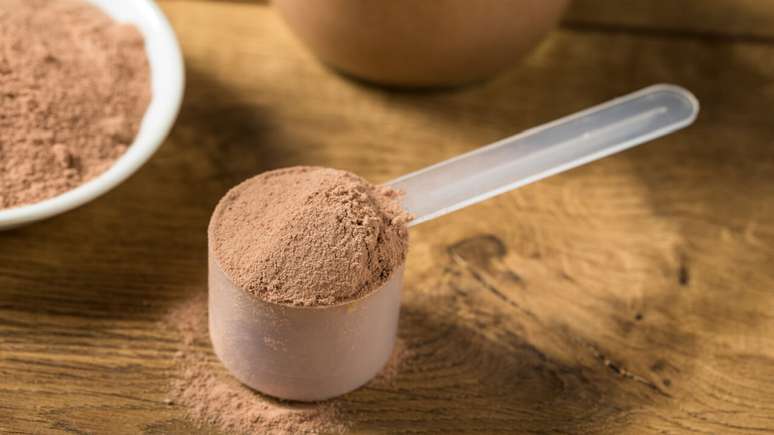Consciously consuming this supplement brings numerous health benefits.
Most people think that consuming whey protein can make someone strong. Myth! In other words, this supplement is not “magic powder” and the absence of even a minimum of medical advice causes serious damage to health. This is where the question arises: who should take whey protein?
Find out who should take whey protein
“Anyone who has to meet their daily protein goal and anyone who can’t consume the right amount of protein per day. So, we assume that people associate whey a lot with weight gain, with exercise, with bodybuilding, with iron intake, but that’s not really the case,” replied the Personal trainer and nutritionist Aline Becker in an exclusive interview with Sport Life.
It should be noted that there are no criteria for not taking it, nor that any restrictions apply only to people who follow a physical exercise routine. “A very important detail to mention: whey doesn’t do great things (laughs),” Aline added.
Another point to mention is that for a beginner it can be concentrated or isolated and hydrolyzed, that is, it depends on each organism. Once again the importance of evaluation emerges.
“There is no whey that is recommended first and foremost for everyone. If a person is not lactose intolerant or sensitive and has good digestion, concentrated whey will end up being the first, because it has a good cost-benefit ratio and its effect is the same. Now, for a person who suffers from lactose intolerance and difficult digestion, hydrolysate is what will come to the fore,” explained the professional.
So remember that proteins are important in every meal and whey is a great option even for those who do not have training, convenience, a protein intake sometimes tastier, because with whey you can make different recipes.
What are the main harms of excess whey protein?
“We can mention the most overloaded kidney, excess gas, which causes an imbalance of intestinal bacteria and a debiotic condition in the intestine. What is a debiotic condition? It is when the intestinal flora is unbalanced, when harmful bacteria increase and beneficial bacteria decrease. Diarrhea, constipation and excess gas may then occur,” he advised.
Is it better to take whey with water or milk?
“That’s the problem! In fact, when we take whey with milk it has an effect, yes, but there is a peculiarity. For example: when we take whey with milk the absorption ends up being a little slower, but this does not matter to the benefits that the whey provides, because it ends up having the same effect. But taking it with milk ends up making it difficult to digest the whey and ends up hindering its absorption a little. So, for those people who have digestion problems or are intolerant or sensitive to lactose, it makes no sense to take it with milk. If you have good digestion and you have no problem taking it with milk, just do the calorie calculation to be in line with your diet”, concluded Aline Becker.
Source: Terra
Ben Stock is a lifestyle journalist and author at Gossipify. He writes about topics such as health, wellness, travel, food and home decor. He provides practical advice and inspiration to improve well-being, keeps readers up to date with latest lifestyle news and trends, known for his engaging writing style, in-depth analysis and unique perspectives.





![It All Begins Here: What’s in store for Monday 20 October 2025 Episode 1288 [SPOILERS] It All Begins Here: What’s in store for Monday 20 October 2025 Episode 1288 [SPOILERS]](https://fr.web.img4.acsta.net/img/61/5b/615b86ae565677594436e6cf1c0294ba.jpg)



